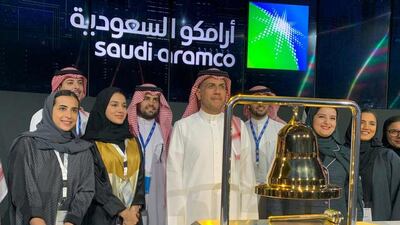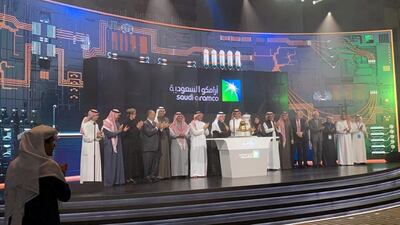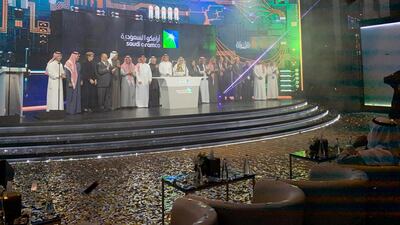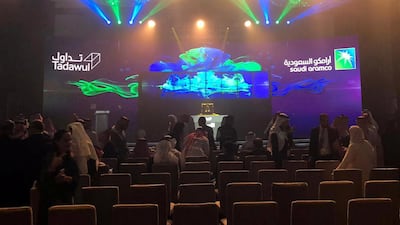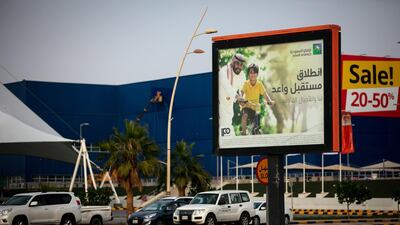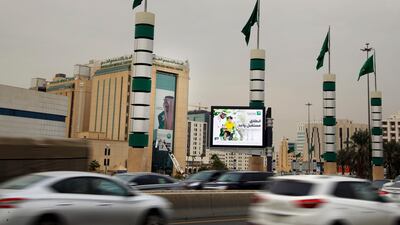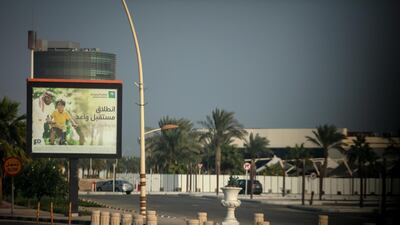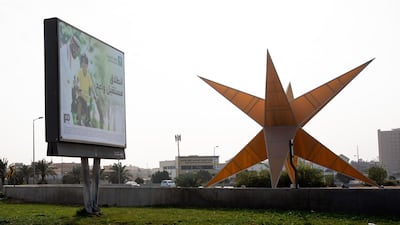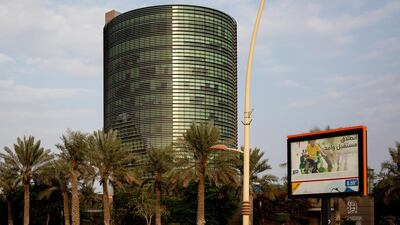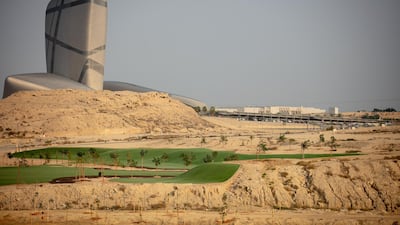Saudi Aramco jumped 10 per cent, the daily limit of the kingdom's Tadawul stock exchange, as it began trading on Wednesday, pushing the company's market value to $1.88 trillion (Dh6.9trn) and anchoring it as the largest public offering globally.
The shares advanced to 35.2 riyals at 10:30am in Riyadh above the top-end of the offering range which was 32 riyals. A similar increase on its second day of trading could push the valuation of Saudi Arabia's state-owned oil company above the $2 trillion valuation that had initially been sought for the firm.
"We expect that Aramco will be the first company to surpass $2 trillion in valuation tomorrow (December 12), and may trade limit up (+10 per cent) for another session," Zachary Cefaratti, chief executive of Dubai-based fund manager Dalma Capital said after the company's historic market debut on Wednesday.
The IPO of the world's most profitable company received $119 billion in orders for the $25.6bn offering, a 465 per cent oversubscription, amounting to a $1.7tn valuation for the company. If a so-called "greenshoe option" is exercised in part or full, the listing value would rise to as much as $29.4bn, effectively meaning Aramco will have raised 17 per cent more than Alibaba’s previous $25bn record for the world’s largest IPO in 2014.
"Today's milestone underlines the kingdom's commitment to nurturing a strong capital market and demonstrates further significant progress in delivering Vision 2030 - the kingdom's transformation, economic growth and diversification program that continues with pace and determination" Yasir Othman Al-Rumayyan, chairman of Saudi Aramco, said following its listing.
"My focus, and that of our board of directors, is to work in the interests of all shareholders, guiding Saudi Aramco as it continues to fulfil its vital role in global energy supply, whilst striving to create long-term value to benefit all shareholders."
A total of 1.5 per cent of the company, or about 3 billion shares, were offered to retail and institutional investors and the company may have a second listing in the future on a foreign exchange.
"There is no denying the numbers. Saudi Arabia has made its mark in public markets, said London Capital Group's head of research, Jasper Lawler.
With the listing of Aramco, the kingdom's benchmark Tadawul index is now the ninth-largest globally. The market capitalisation of the exchange prior to the listing was about $500bn.
“Saudi Aramco’s partial listing ... is positive for the country’s asset management industry," said Vanessa Robert, a vice president with Moody’s Funds and Asset Management group. "It will improve the liquidity and trading volume of the Saudi equity market. This is credit positive for Saudi asset managers such as NCB Capital and Jadwa Asset Management, and other managers involved in cross-border products.”
The number of individual subscribers was 5.056 million, with a total subscription value of 49.2bn riyals. Saudi Arabian subscribers were allocated 96.6 per cent of the retail offering and expatriates and GCC nationals 3.4 per cent.
For the institutional tranche, the final value of subscriptions totalled 397bn riyals, which represented an oversubscription of 620 per cent of the 2 billion shares offered in the tranche.
The kingdom's companies, including listed companies, private companies, insurance companies and authorised persons, were allocated 37.5 per cent of the tranche shares. Public funds, private funds and funds managed by authorised persons received 26.3 per cent, while government institutions of Saudi Arabia were allocated 13.2 per cent. Foreign investors including GCC investors, qualified foreign investors and non-resident investors through swap agreements received 23.1 per cent.
"The most meaningful aspect of this IPO is not the pricing, valuation, size of the deal or oversubscription - but that this is happening, and what that means for Saudi Arabia and the GCC," Mr Cefaratti said. "Saudi Arabia opening the books of its crown jewel is an important step in diversifying and modernising its economy. It marks a step towards a historic shift in Saudi Arabia going from principally being a source of oil and capital to becoming a source of investment opportunities in a modern, diversified economy."
Saudi Aramco is the world's most profitable company, earning $68bn for the first nine months of the year on revenue of $217.1bn. A debut $12bn bond issued by the company in April was more than ten-times oversubscribed. Aramco accounts for one in every eight barrels of crude produced. In 2018, it produced 13.6 million barrels per day of oil equivalent, including 10.3 million bpd of crude.
Aramco will be included in the MSCI, FTSE and S&P emerging market indices.
"We expect this to take place on a fast-track basis within two weeks and to lead to incremental buying of $3.4bn before accounting for the greenshoe, which will increase Aramco’s index weight even further," Mr Cefaratti said.
Amin Nasser, Aramco's chief executive said the company believes the demand from a broad base of individual investors and a wide range of institutions reflects trust in the company's long-term strategy and vision to become "the world’s preeminent integrated energy and chemicals company."
“We will remain focused on providing our shareholders with resilient value creation through crude oil price cycles,” he said.
